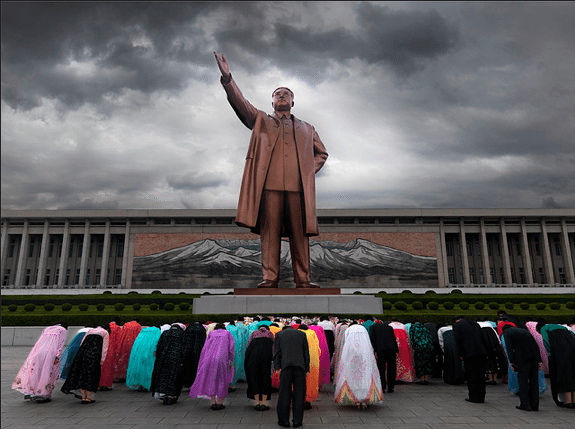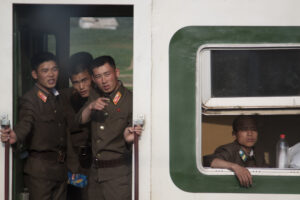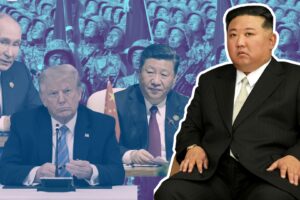North Korea would be one of the last countries in the world that one would think of when it comes to political pluralism. However, three political parties do exist legally in the DPRK. In addition to the ruling Workers’ Party of Korea there is another, with the quite Western-sounding name of the Social Democratic Party of Korea, and the more Oriental-sounding Party of Young Friends of Chondogyo. This article tells why these two parties exist and what place they occupy in modern North Korean politics.
The history of both parties goes back to the late 1940s when, after the defeat of the Axis bloc in World War II, the USSR began to decide its policy towards the occupied territories. The initial idea was that the countries to be created in Eastern Europe and northern Korea would be “people’s democracies,” i.e. states with a multi-party system, more democratic than the Soviet Union. These states were supposed to be loyal to the USSR, as the Soviet authorities hoped that communists would be able to maintain power even in democratic system. Soon, however, it became quite obvious that they would not – and all non-communist parties were reduced to mere puppets of the ruling one.
North Korea would be one of the last countries in the world that one would think of when it comes to political pluralism. However, three political parties do exist legally in the DPRK. In addition to the ruling Workers’ Party of Korea there is another, with the quite Western-sounding name of the Social Democratic Party of Korea, and the more Oriental-sounding Party of Young Friends of Chondogyo. This article tells why these two parties exist and what place they occupy in modern North Korean politics.
The history of both parties goes back to the late 1940s when, after the defeat of the Axis bloc in World War II, the USSR began to decide its policy towards the occupied territories. The initial idea was that the countries to be created in Eastern Europe and northern Korea would be “people’s democracies,” i.e. states with a multi-party system, more democratic than the Soviet Union. These states were supposed to be loyal to the USSR, as the Soviet authorities hoped that communists would be able to maintain power even in democratic system. Soon, however, it became quite obvious that they would not – and all non-communist parties were reduced to mere puppets of the ruling one.
Try unlimited access
Only $1 for four weeks
-
Unlimited access to all of NK News: reporting, investigations, analysis
-
Year-one discount if you continue past $1 trial period
-
The NK News Daily Update, an email newsletter to keep you in the loop
-
Searchable archive of all content, photo galleries, special columns
-
Contact NK News reporters with tips or requests for reporting
Get unlimited access to all NK News content, including original reporting, investigations, and analyses by our team of DPRK experts.
Subscribe
now
All major cards accepted. No commitments – you can cancel any time.











